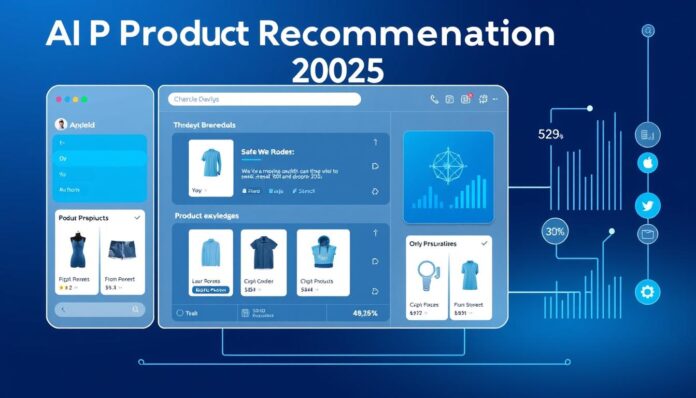As we move through 2025, these intelligent systems have become more sophisticated, leveraging advanced machine learning algorithms to understand customer behavior and predict purchasing patterns with remarkable accuracy. The right AI recommendation tool can transform your e-commerce business by creating personalized shopping journeys that feel almost magical to your customers.
We’ve analyzed dozens of solutions to bring you this comprehensive guide to the top 20 AI product recommendation tools that are reshaping e-commerce in 2025. Whether you’re running a small Shopify store or managing an enterprise-level operation, you’ll find options tailored to your specific needs and budget.
Table of Contents
Why AI Product Recommendations Matter in 2025
The e-commerce landscape has evolved dramatically, with AI recommendation engines now driving significant business outcomes:
- 35% of Amazon’s revenue comes from its recommendation engine
- Personalized recommendations can increase conversion rates by up to 320%
- 77% of consumers have chosen, recommended, or paid more for brands that provide personalized experiences
- AI-driven recommendations reduce cart abandonment by up to 30%
- Businesses using advanced AI recommendation tools report 40% higher customer lifetime value
Modern AI recommendation systems analyze thousands of data points to deliver hyper-personalized suggestions
Not Sure Which AI Tool Is Right For Your Store?
Download our free AI Recommendation Tool Selection Checklist to evaluate each option as you read through this guide. This practical resource helps you match tools to your specific business needs.
Top 20 AI Product Recommendation Tools for E-Commerce in 2025
We’ve evaluated these tools based on AI technology sophistication, ease of integration, customization options, pricing models, and real customer results. Each tool has been tested with actual e-commerce stores to ensure our recommendations are practical and effective.
1. Nosto
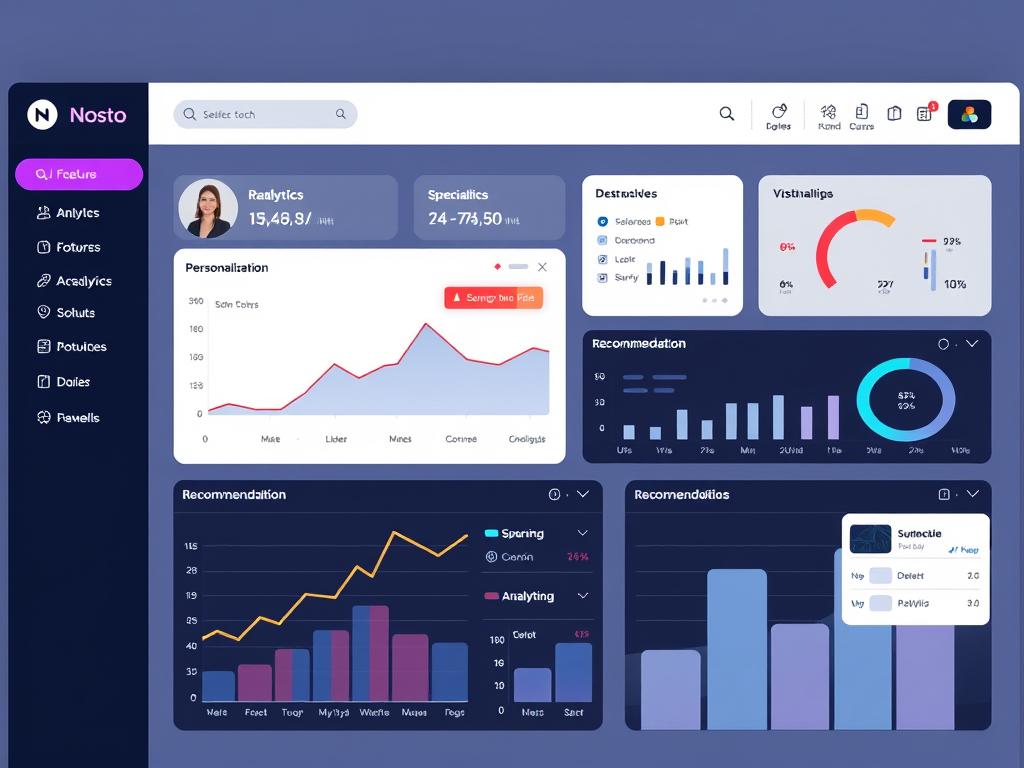
Nosto leads the market with its Commerce Experience Platform that delivers hyper-personalized shopping experiences. Its AI engine analyzes customer behavior in real-time, creating tailored product recommendations that adapt instantly to browsing patterns, purchase history, and contextual signals.
Key AI Features:
- Predictive analytics that anticipate customer needs before they express them
- Multi-algorithm approach combining collaborative filtering and deep learning
- Visual merchandising AI that matches products based on visual similarity
- Segment-specific recommendation strategies with automated optimization
Pricing: Custom pricing based on store size and traffic. Typically starts at $1,000/month for mid-sized stores.
Best for: Mid to large e-commerce businesses seeking enterprise-grade personalization with minimal technical overhead.
Pros
- Seamless integration with major e-commerce platforms
- No-code setup with AI-driven optimization
- Comprehensive A/B testing capabilities
- Omnichannel personalization across web, email, and apps
Cons
- Higher price point than some competitors
- Advanced features require larger data sets to be effective
- Can be complex to fully customize for unique business models
2. Dynamic Yield (by Mastercard)
Dynamic Yield, now part of Mastercard, offers an Experience OS that powers personalized recommendations across all customer touchpoints. Its AI engine excels at unifying customer data from multiple sources to create a cohesive recommendation strategy that evolves with each interaction.
Key AI Features:
- Adaptive algorithms that automatically select the best recommendation strategy
- Predictive targeting based on propensity modeling
- Deep learning for product affinity analysis
- Real-time inventory-aware recommendations
Pricing: Enterprise pricing model, typically $2,000-$5,000/month based on traffic volume.
Best for: Enterprise retailers and brands requiring sophisticated omnichannel personalization.
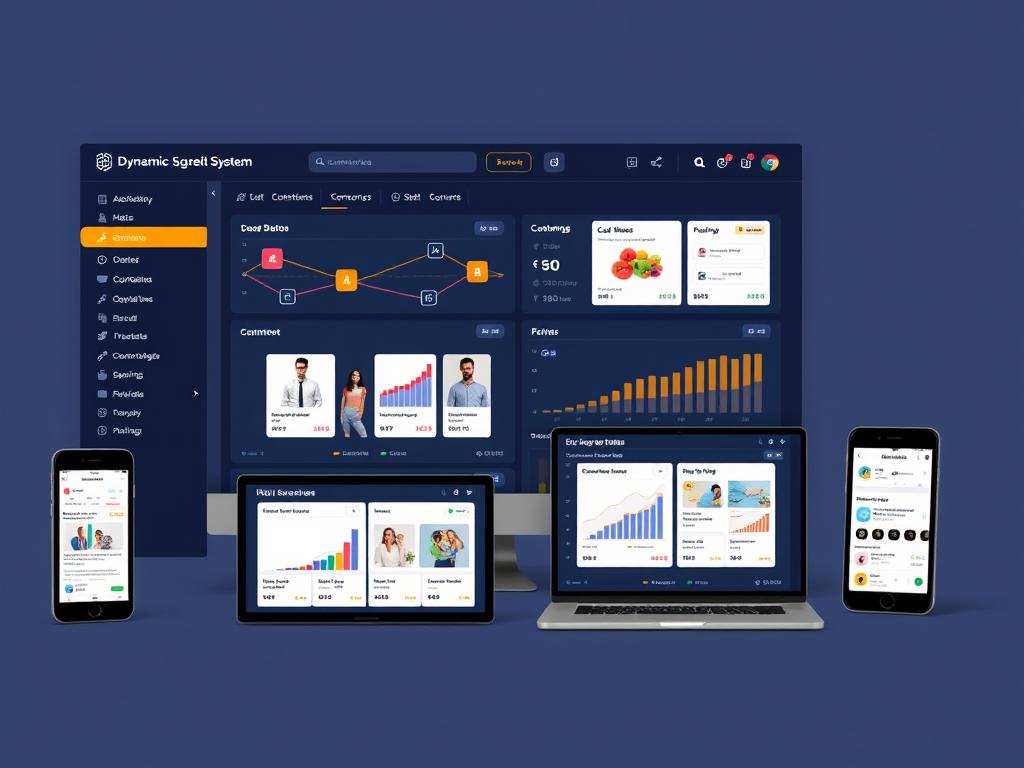
Pros
- Unified experience across web, mobile, email, and kiosks
- Advanced experimentation capabilities
- Robust API for custom implementations
- Enterprise-grade security and compliance
Cons
- Significant investment required
- Implementation can be resource-intensive
- Best results require dedicated optimization team
3. Algolia Recommend
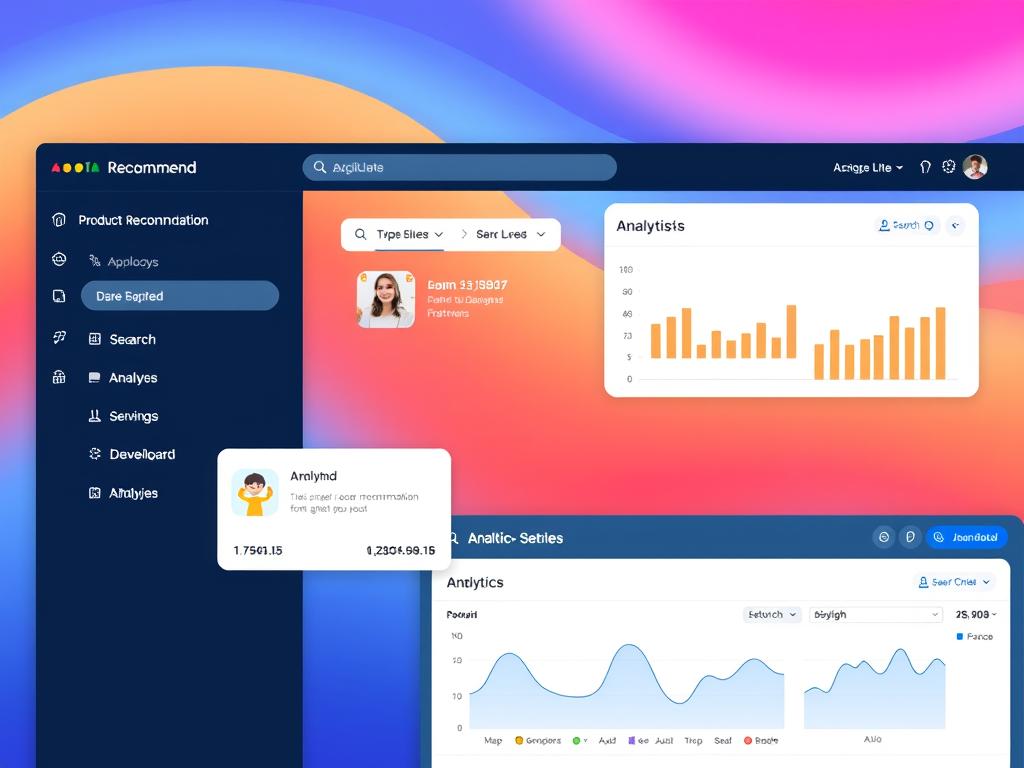
Algolia Recommend combines the power of AI-driven recommendations with the company’s industry-leading search capabilities. This unique integration allows for recommendations that not only reflect behavioral patterns but also semantic understanding of product catalogs.
Key AI Features:
- NeuralSearch™ technology for understanding customer intent
- Hybrid recommendation engine combining collaborative filtering and content-based approaches
- Real-time personalization with millisecond response times
- Search-integrated recommendations for cohesive discovery experience
Pricing: Tiered pricing starting at $499/month for basic recommendation capabilities.
Best for: E-commerce businesses that prioritize search functionality alongside recommendations.
Pros
- Seamless integration with Algolia Search
- Developer-friendly API and SDKs
- Lightning-fast performance
- Sophisticated relevance controls
Cons
- Most valuable when used with Algolia Search (additional cost)
- Less comprehensive than dedicated recommendation platforms
- Limited omnichannel capabilities
4. Recombee
Recombee offers a powerful recommendation API that leverages deep learning to deliver highly relevant product suggestions. Its AI engine excels at cold-start recommendations and quickly adapts to new products and users, making it ideal for rapidly changing catalogs.
Key AI Features:
- Advanced deep learning models that require minimal data to start
- Automatic model selection and optimization
- Real-time recommendation updates based on user interactions
- Contextual awareness for situation-specific recommendations
Pricing: Usage-based pricing starting at $99/month for up to 1M recommendations.
Best for: Growing e-commerce businesses with dynamic catalogs and limited historical data.
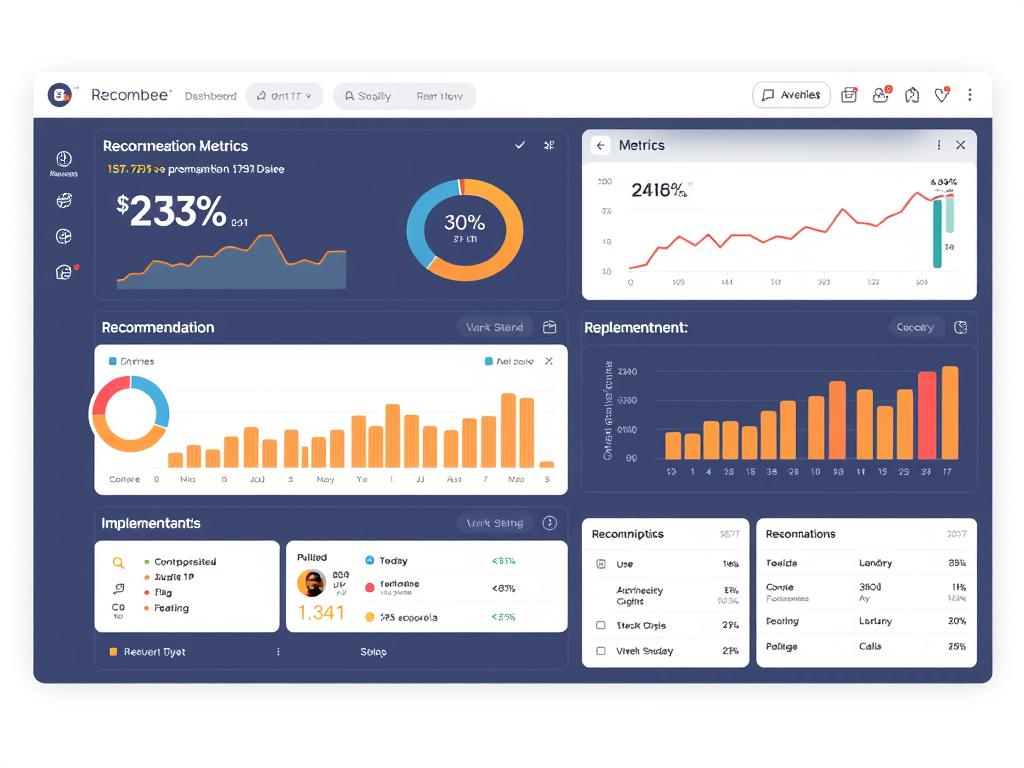
Pros
- Excellent performance with limited historical data
- Flexible API with multiple SDKs
- Transparent, usage-based pricing
- Low latency even at high volumes
Cons
- Requires development resources to implement
- Limited UI customization options
- Fewer out-of-the-box integrations than some competitors
5. Clerk.io
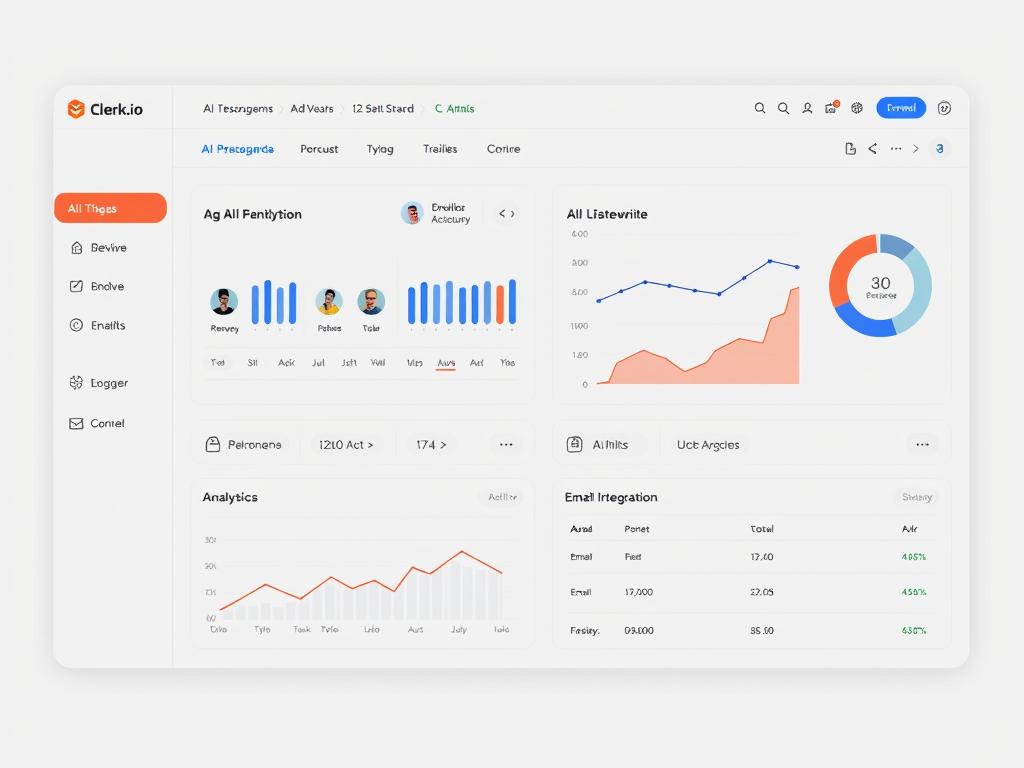
Clerk.io provides an all-in-one personalization platform with a focus on ease of implementation and quick ROI. Its AI engine specializes in identifying purchase patterns and product affinities to create recommendations that drive immediate revenue impact.
Key AI Features:
- Self-learning algorithms that optimize for conversion and revenue
- Behavioral segmentation for targeted recommendations
- Automated email recommendation engine
- Visual similarity matching for fashion and home decor
Pricing: Tiered pricing based on pageviews, starting at $149/month for up to 10,000 monthly visitors.
Best for: Small to medium-sized e-commerce stores seeking quick implementation and clear ROI.
Pros
- Quick setup with no-code implementation
- Direct ROI tracking and revenue attribution
- Integrated email recommendations
- Excellent support for smaller merchants
Cons
- Less sophisticated than enterprise solutions
- Limited customization for complex business rules
- Can become expensive as traffic grows
6. Bloomreach Discovery
Bloomreach Discovery combines product recommendations with advanced search and merchandising capabilities. Its AI engine leverages semantic understanding of products and customer intent to deliver highly relevant recommendations across the shopping journey.
Key AI Features:
- Semantic Vector Search for understanding product relationships
- Intent-driven personalization based on shopping behavior
- Automated merchandising with business rule integration
- Real-time optimization for conversion and margin
Pricing: Enterprise pricing model, typically starting at $3,000/month.
Best for: Mid to large e-commerce businesses seeking integrated search and recommendation capabilities.
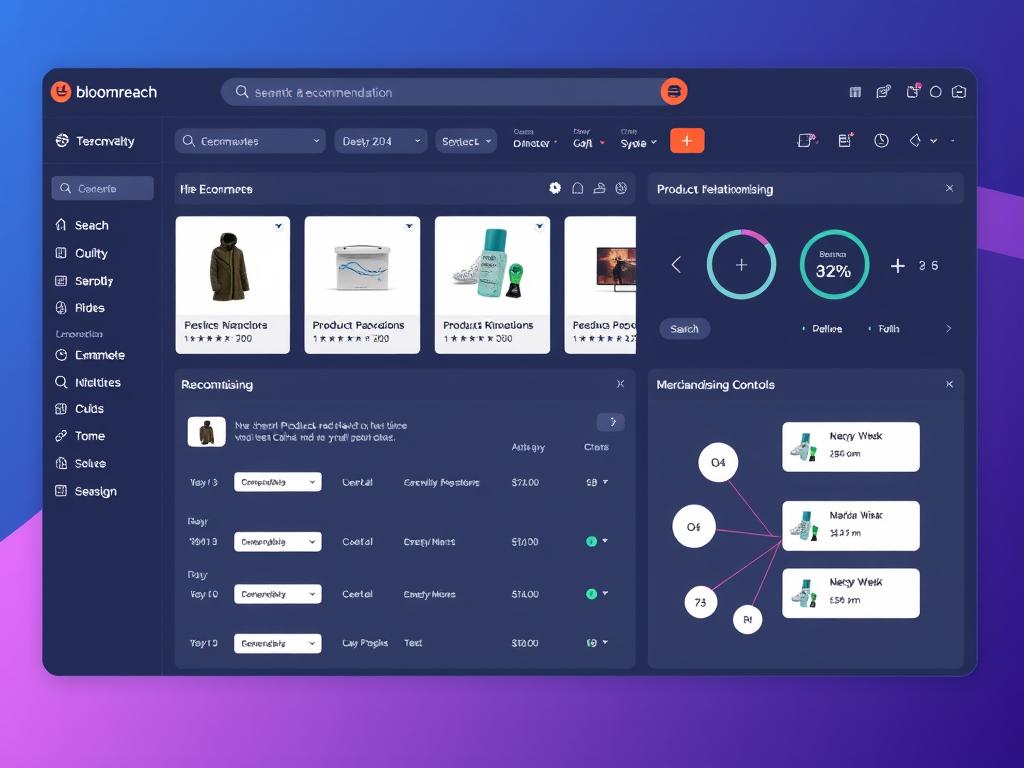
Pros
- Unified search and recommendation platform
- Advanced semantic understanding of products
- Powerful merchandising controls
- Strong B2B and B2C capabilities
Cons
- Significant investment required
- Complex implementation process
- Requires dedicated resources to maximize value
7. Qubit (by Coveo)
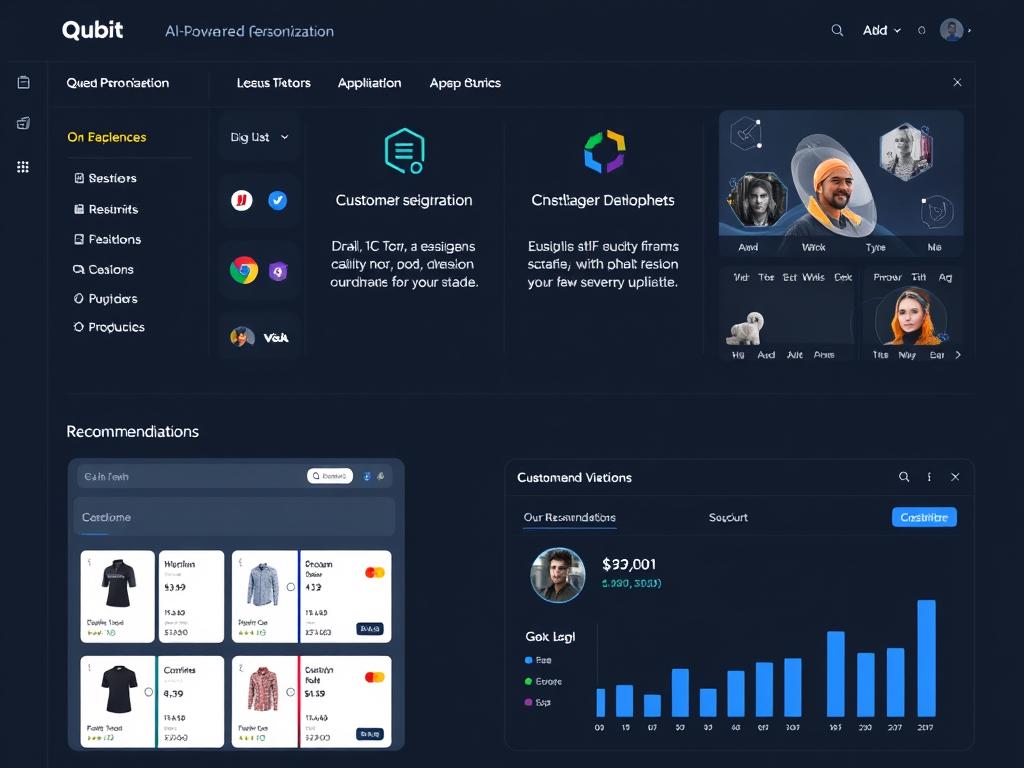
Qubit, now part of Coveo, offers an AI-powered personalization platform that excels at creating 1:1 customer experiences. Its recommendation engine uses advanced machine learning to identify subtle patterns in customer behavior and product interactions.
Key AI Features:
- Bayesian bandit algorithms for continuous optimization
- Visitor clustering for automated segmentation
- Predictive personalization based on behavioral patterns
- Social proof and scarcity signals integration
Pricing: Enterprise pricing, typically $2,500-$6,000/month based on traffic and requirements.
Best for: Enterprise retailers seeking sophisticated personalization with advanced testing capabilities.
Pros
- Comprehensive personalization beyond just recommendations
- Advanced experimentation framework
- Sophisticated segmentation capabilities
- Integration with Coveo’s relevance platform
Cons
- Premium pricing
- Requires significant traffic for optimal results
- Complex implementation and management
8. Visenze
Visenze specializes in visual AI-powered recommendations, allowing customers to discover products based on visual similarity. Its technology excels in fashion, home decor, and other visually-driven categories where style matching is crucial.
Key AI Features:
- Computer vision AI for visual similarity matching
- Automated product tagging and attribute extraction
- Visual search integration with recommendations
- Style preference learning from user interactions
Pricing: Custom pricing based on catalog size and feature requirements, starting around $1,500/month.
Best for: Fashion, home decor, and visually-driven e-commerce stores.
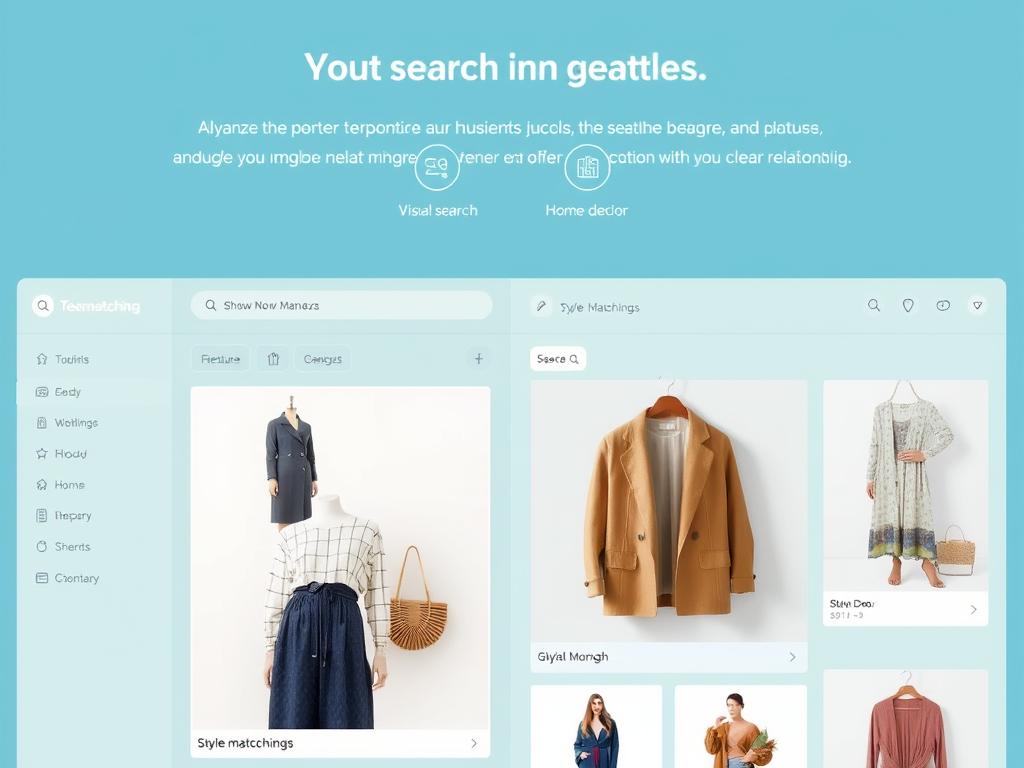
Pros
- Unmatched visual similarity recommendations
- Automated visual attribute tagging
- Integrated visual search capabilities
- Works with minimal product metadata
Cons
- Less effective for non-visual product categories
- Higher cost than basic recommendation engines
- Requires high-quality product imagery
9. Klevu
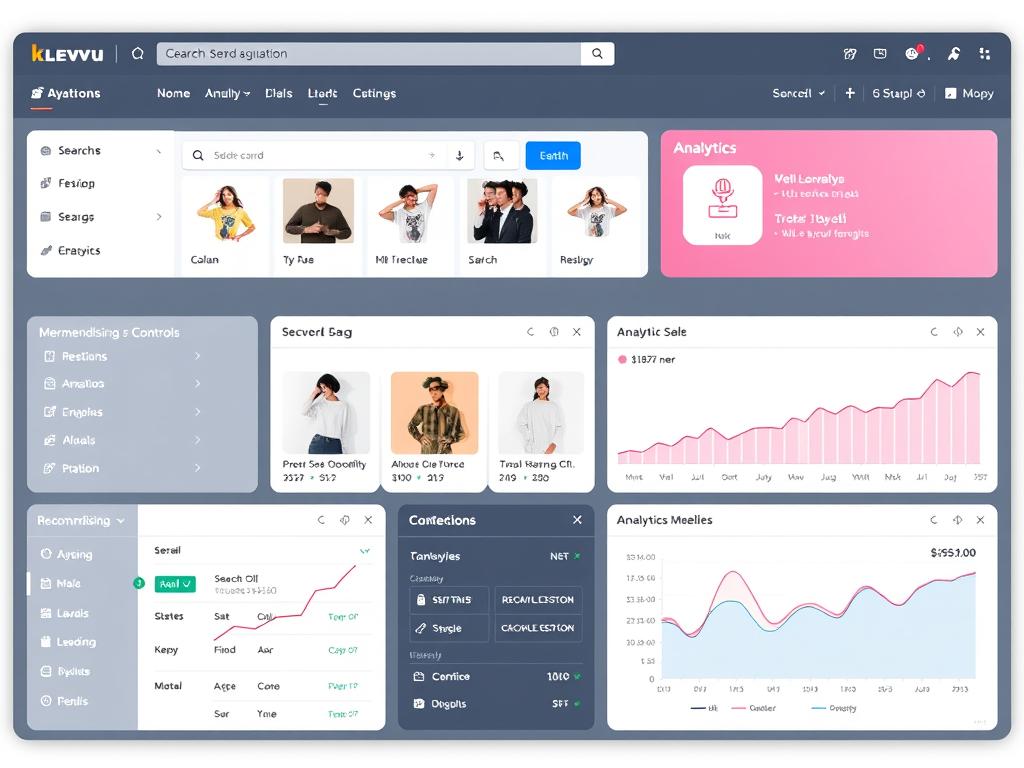
Klevu combines AI-powered search with smart product recommendations to create a unified discovery experience. Its recommendation engine leverages natural language understanding to match products with customer intent expressed through search and browsing behavior.
Key AI Features:
- Natural Language Processing for intent understanding
- Search-driven recommendation engine
- Automated catalog enrichment
- Learning-to-rank algorithms for personalized results
Pricing: Tiered pricing based on search volume and features, starting at $299/month.
Best for: E-commerce businesses looking to enhance both search and recommendations simultaneously.
Pros
- Unified search and recommendation platform
- Strong natural language understanding
- Easy implementation with major platforms
- Solid mid-market solution
Cons
- Less advanced than specialized recommendation engines
- Limited customization for complex use cases
- Can become expensive as search volume grows
10. Insider
Insider offers a comprehensive customer experience platform with powerful AI-driven product recommendations across web, mobile, email, and messaging channels. Its recommendation engine excels at creating consistent personalization across the entire customer journey.
Key AI Features:
- Predictive segmentation for targeted recommendations
- Cross-channel recommendation consistency
- AI-powered journey orchestration
- Next-best-action predictions
Pricing: Custom pricing based on features and traffic, typically starting at $1,500/month.
Best for: Mid to large e-commerce businesses seeking unified cross-channel personalization.
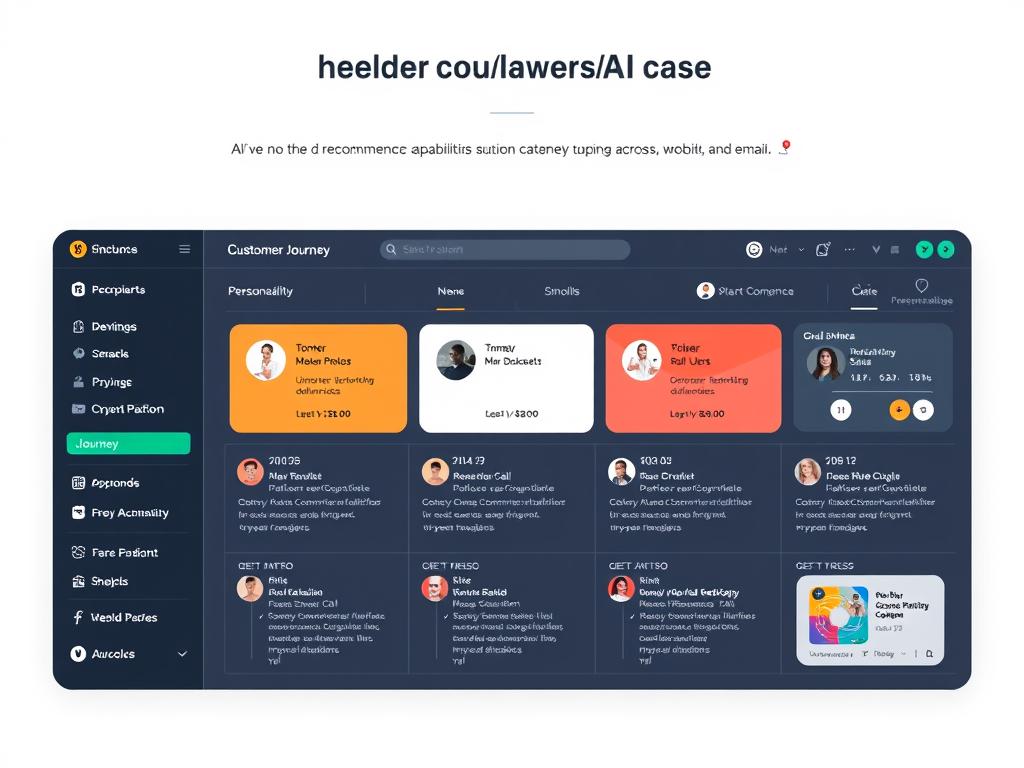
Pros
- Comprehensive cross-channel capabilities
- Advanced customer journey orchestration
- Robust segmentation and targeting
- All-in-one marketing solution
Cons
- Higher price point than specialized tools
- Can be complex to fully implement
- Requires commitment to platform ecosystem
AI Recommendation Tools Comparison Table
| Tool | AI Technology Used | Integration Options | Free Trial |
| Nosto | Deep Learning, Collaborative Filtering | Shopify, Magento, WooCommerce, BigCommerce, Custom API | 14 days |
| Dynamic Yield | Adaptive Algorithms, Predictive Targeting | Custom JavaScript, API, Major E-commerce Platforms | Demo Only |
| Algolia Recommend | NeuralSearch™, Semantic Understanding | JavaScript, REST API, Mobile SDKs | 14 days |
| Recombee | Deep Learning, Automatic Model Selection | REST API, JavaScript, PHP, Python, Ruby SDKs | 30 days |
| Clerk.io | Self-learning Algorithms, Behavioral Segmentation | Shopify, Magento, WooCommerce, PrestaShop | 7 days |
| Bloomreach | Semantic Vector Search, Intent Recognition | JavaScript, API, Commerce Platforms | Demo Only |
| Qubit (Coveo) | Bayesian Bandit, Visitor Clustering | JavaScript, API, Major E-commerce Platforms | Demo Only |
| Visenze | Computer Vision, Visual Similarity | API, JavaScript, Mobile SDKs | Limited Demo |
| Klevu | NLP, Learning-to-Rank | Shopify, Magento, BigCommerce, API | 14 days |
| Insider | Predictive Segmentation, Journey Orchestration | JavaScript, API, E-commerce Platforms | Demo Only |
Additional AI Recommendation Tools to Consider
11. Luigi’s Box
Specializes in search-driven recommendations with a focus on European markets. Offers quick implementation and strong results for mid-sized stores.
Best for: European e-commerce businesses seeking integrated search and recommendations.

12. Shopify Magic
Native AI recommendation engine built into Shopify’s ecosystem. Offers seamless integration and solid performance for Shopify merchants.
Best for: Shopify store owners looking for native recommendation capabilities.
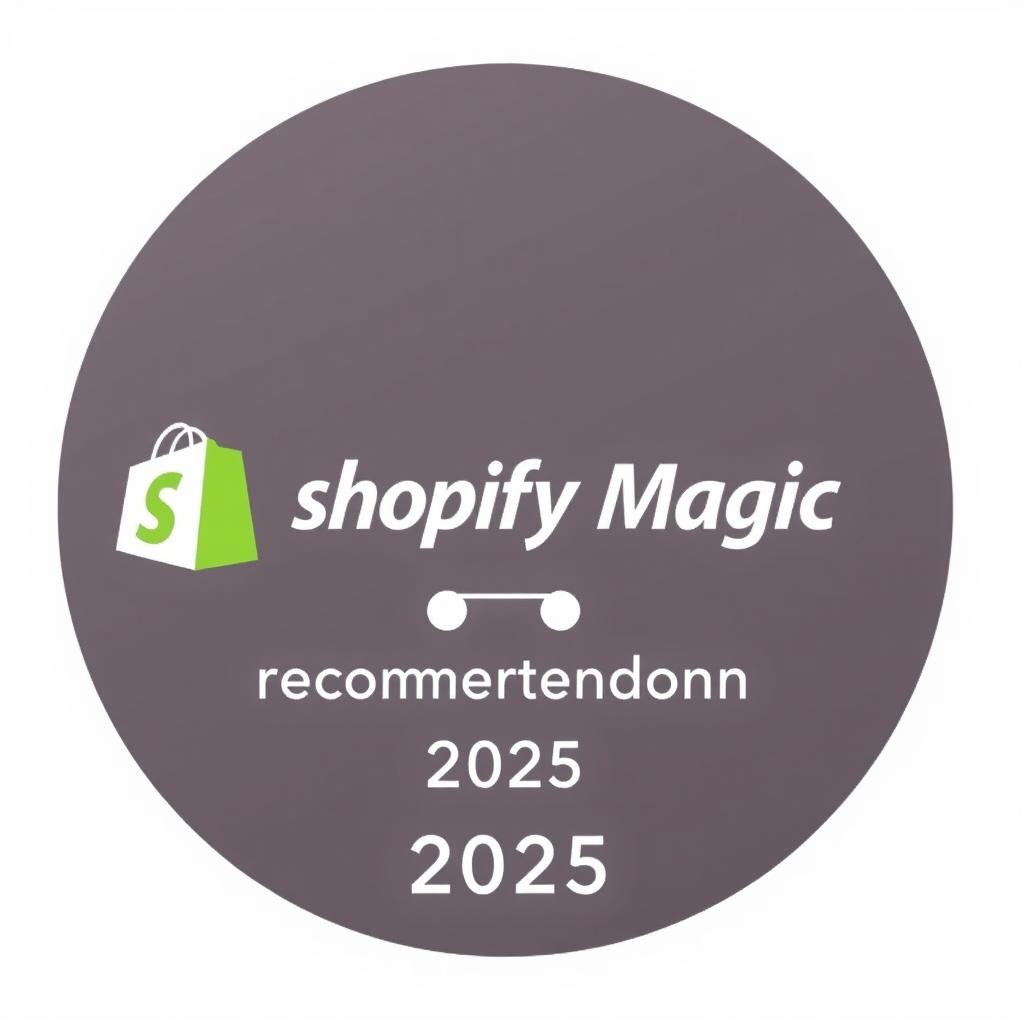
13. Emarsys
Omnichannel personalization platform with strong email and mobile recommendation capabilities. Excels at customer lifecycle recommendations.
Best for: Retailers focused on omnichannel marketing with strong email capabilities.

14. Personali
AI-driven incentive personalization platform that combines product recommendations with individualized offers and discounts.
Best for: E-commerce businesses focusing on conversion optimization through personalized incentives.

15. Attraqt
AI-powered merchandising and recommendation platform with strong fashion and apparel capabilities. Balances automation with merchandiser control.
Best for: Fashion and apparel retailers seeking balanced AI and human curation.

16. Reflektion (by Sitecore)
AI-driven individualization platform that creates 1:1 experiences across digital touchpoints. Strong in real-time personalization.
Best for: Enterprise retailers using or considering the Sitecore ecosystem.
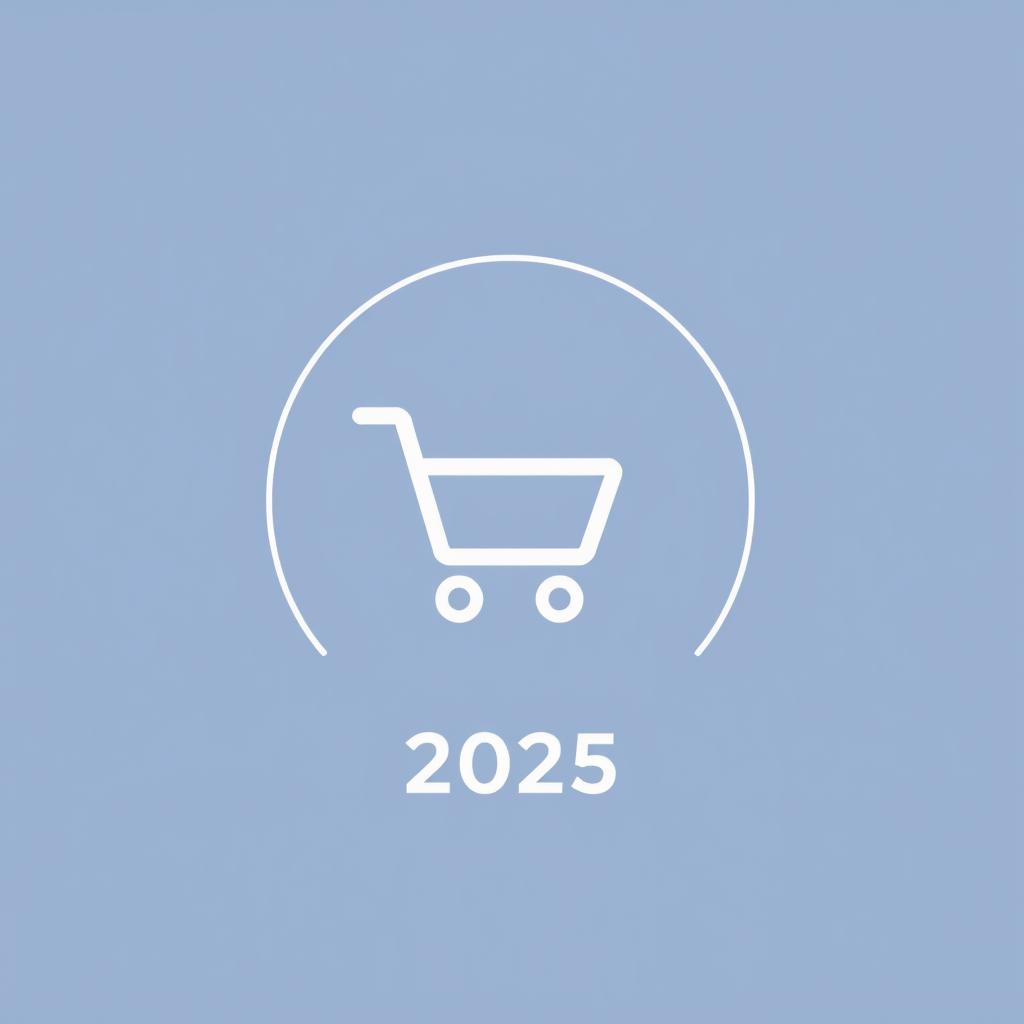
17. Barilliance
Comprehensive personalization suite with strong email recommendation capabilities. Offers solid performance at mid-market pricing.
Best for: Mid-sized retailers seeking balanced functionality and affordability.

18. Monetate (by Kibo)
Enterprise personalization platform with advanced testing capabilities. Excels at data-driven recommendation optimization.
Best for: Enterprise retailers with sophisticated testing requirements.
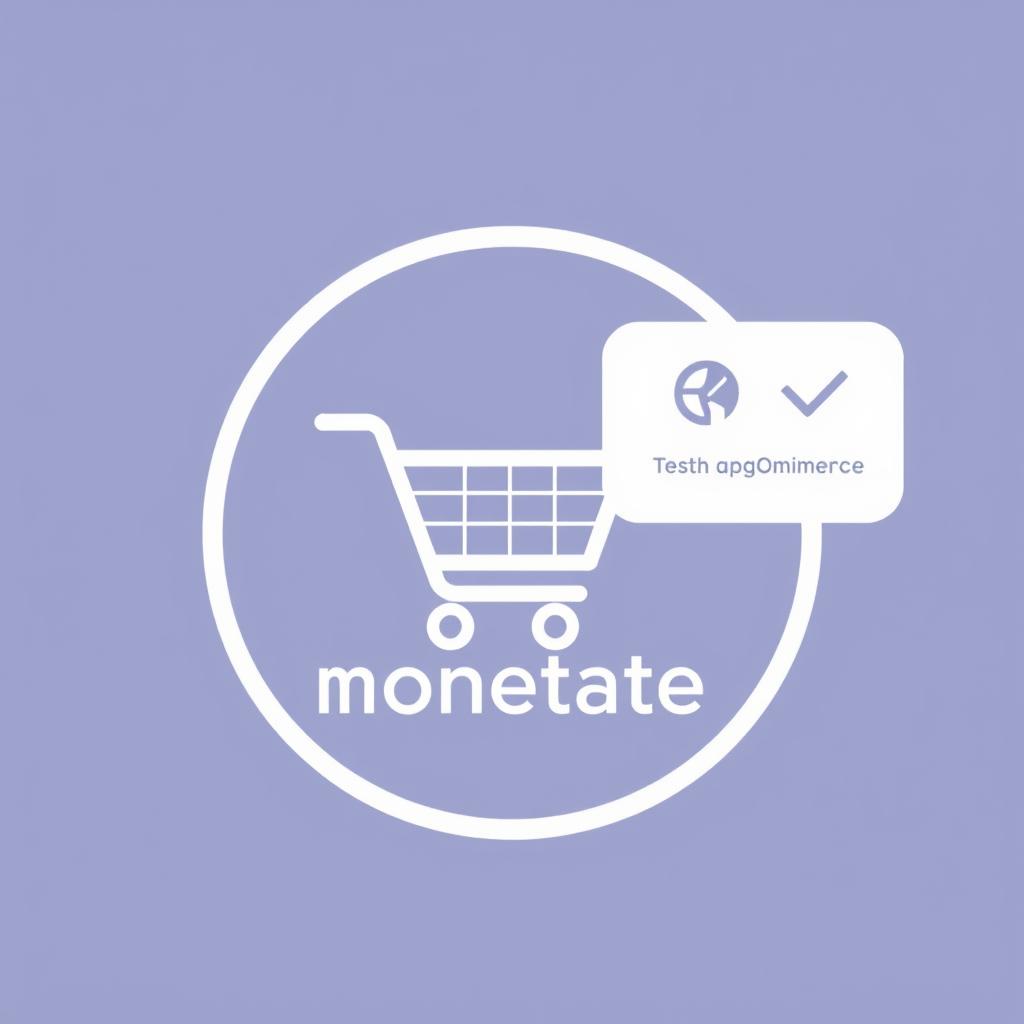
19. LimeSpot
AI personalization platform designed specifically for Shopify Plus merchants. Offers strong performance with minimal configuration.
Best for: Shopify Plus merchants seeking advanced personalization capabilities.
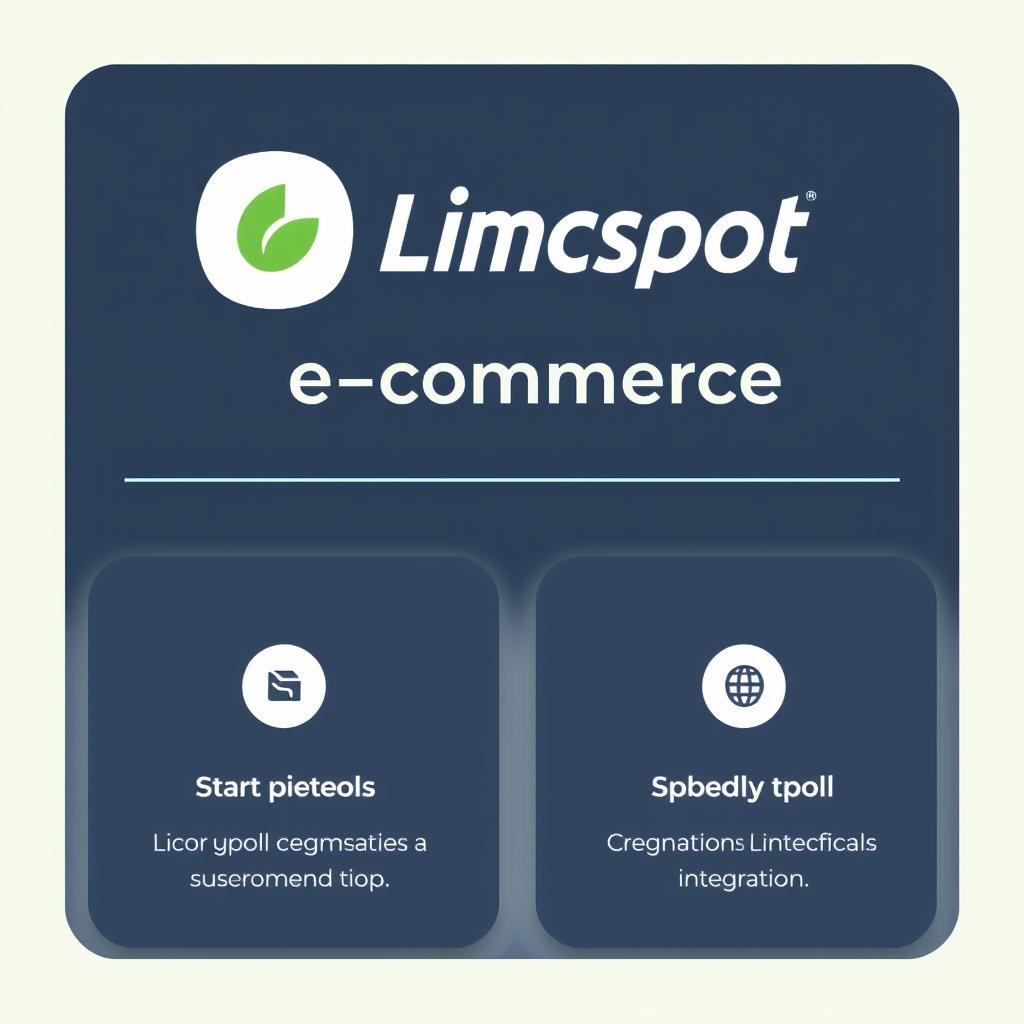
20. Yusp
Advanced recommendation engine with sophisticated machine learning capabilities. Offers highly customizable algorithms and strong performance for complex catalogs.
Best for: Technical teams seeking highly customizable recommendation algorithms.
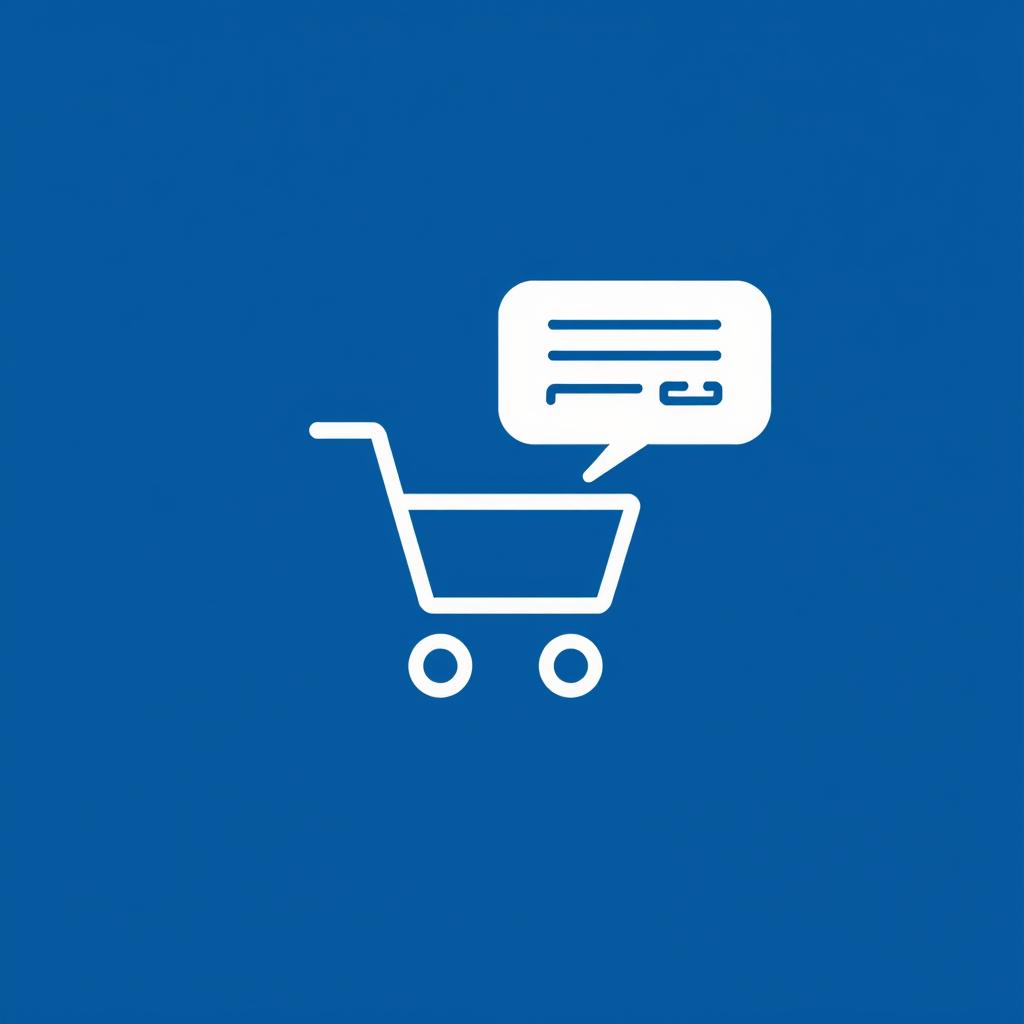
How to Choose the Right AI Recommendation Tool
Selecting the ideal AI recommendation tool for your e-commerce business requires careful consideration of several factors:
Business Size and Resources
Enterprise-level solutions like Dynamic Yield and Bloomreach offer comprehensive capabilities but require significant investment and resources. Smaller businesses may find better value in specialized tools like Clerk.io or Recombee.
Technical Capabilities
Consider your team’s technical expertise. Some tools offer no-code implementation, while others require developer resources for API integration and customization.
E-commerce Platform
Ensure compatibility with your current platform. Some tools offer native integrations with specific platforms (e.g., LimeSpot for Shopify), while others work across multiple platforms.
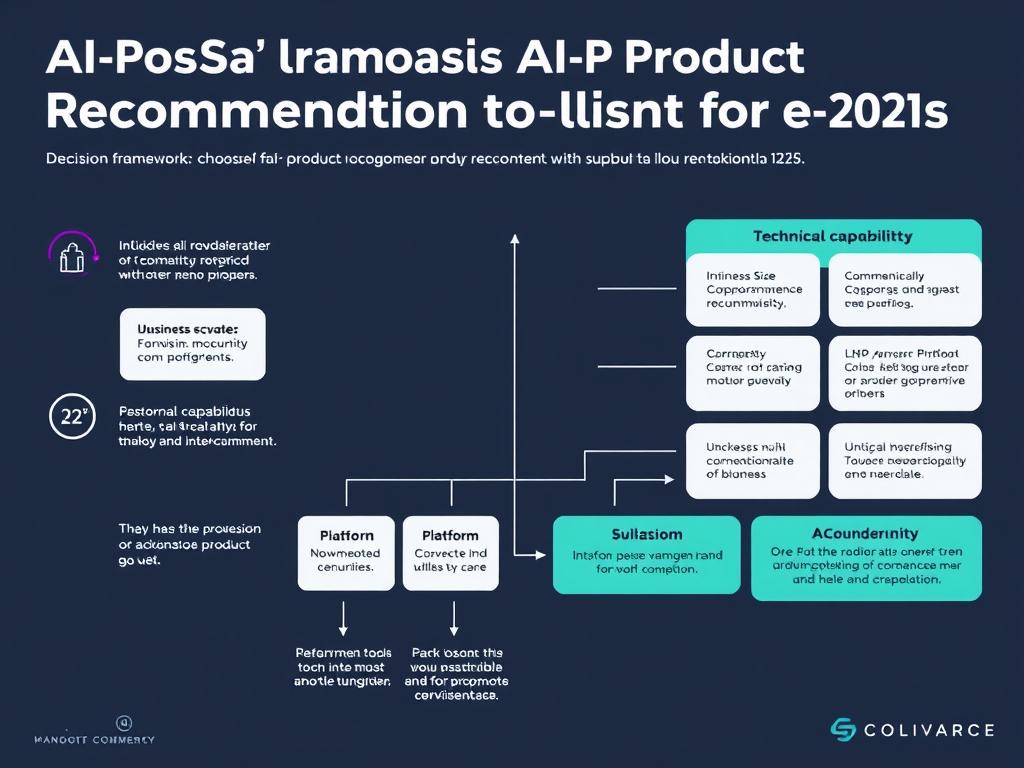
Catalog Characteristics
Visual-heavy catalogs (fashion, home decor) benefit from tools with visual AI capabilities like Visenze. Complex catalogs with many attributes may require more sophisticated semantic understanding.
Budget Constraints
AI recommendation tools range from affordable options starting around $100/month to enterprise solutions costing $5,000+/month. Consider both immediate costs and long-term ROI.
Implementation Best Practices
Data Quality First
Even the most advanced AI can’t overcome poor data. Ensure your product catalog is well-structured with consistent attributes, accurate categories, and high-quality images.
Start with High-Impact Placements
Begin with recommendation widgets on product pages (“You may also like”) and cart pages (“Complete your purchase”) before expanding to homepage and category pages.
A/B Test Everything
Test different recommendation strategies, widget placements, and designs to optimize performance. Most advanced tools include built-in A/B testing capabilities.
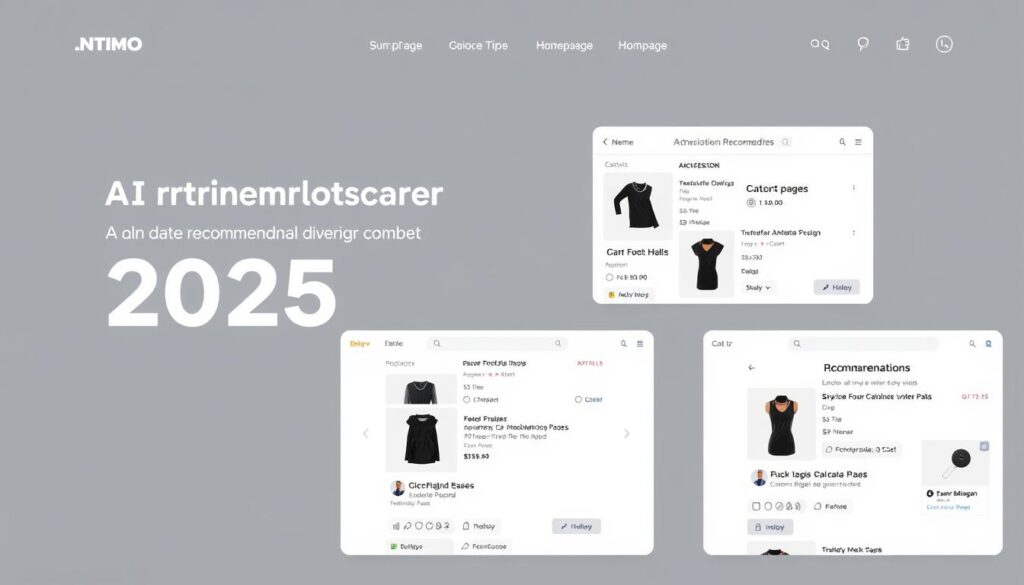
Strategic placement of recommendation widgets can significantly impact conversion rates
Monitor and Optimize
Regularly review performance metrics like click-through rate, conversion rate, and average order value. Use these insights to refine your recommendation strategy.
Combine AI with Human Insight
The most effective recommendation strategies balance AI automation with human merchandising expertise. Use business rules to promote strategic products alongside AI-driven recommendations.
Make the Right Choice for Your E-commerce Business
Choosing the right AI recommendation tool can dramatically impact your e-commerce performance. Download our comprehensive comparison guide to evaluate all 20 tools side-by-side with detailed feature breakdowns, pricing information, and implementation requirements.
Frequently Asked Questions
How quickly can I expect to see ROI from implementing an AI recommendation tool?
Most e-commerce businesses see initial results within 2-4 weeks of proper implementation. Simple recommendation widgets like “Frequently Bought Together” and “Recently Viewed” typically show the fastest ROI. Full optimization can take 3-6 months as the AI learns from customer interactions and you refine your strategy. Businesses typically report 10-30% increases in average order value and conversion rates within the first quarter of implementation.
Do AI recommendation tools work for small e-commerce stores with limited traffic?
Yes, but tool selection is crucial. Small stores should focus on tools designed to perform well with limited data, such as Recombee or Clerk.io, which use algorithms optimized for cold-start scenarios. These tools can begin generating relevant recommendations with minimal historical data. Additionally, content-based recommendation approaches (based on product attributes) work better than collaborative filtering for stores with limited interaction data.
How do AI recommendation tools handle new products with no historical data?
Modern AI recommendation tools use several approaches to handle the “cold-start problem” for new products:
- Content-based filtering that matches new products with similar existing products based on attributes
- Hybrid recommendation models that incorporate product metadata alongside behavioral data
- Temporary boosting of new products to gather initial interaction data
- Visual similarity matching for fashion and home decor items
The most advanced tools automatically adjust their algorithms to incorporate new products within hours of addition to your catalog.
Are AI recommendation tools compliant with privacy regulations like GDPR and CCPA?
Most enterprise-grade AI recommendation tools are designed with privacy compliance in mind, but implementation details matter. Look for tools that offer:
- Anonymous tracking options that don’t rely on personal identifiers
- Data processing agreements (DPAs) that meet GDPR requirements
- Configurable cookie consent integration
- Data deletion capabilities for consumer requests
- Regional data storage options for jurisdictional compliance
Always review the specific privacy features of your chosen tool and consult with legal experts during implementation.
How do AI recommendation tools impact website performance and loading speed?
Implementation quality significantly impacts performance. Most modern AI recommendation tools use asynchronous JavaScript loading, CDN delivery, and lazy loading to minimize performance impact. Best practices include:
- Implementing proper caching strategies
- Using lightweight recommendation widgets that load after critical content
- Optimizing image delivery in recommendation carousels
- Monitoring performance metrics after implementation
When properly implemented, the conversion benefits of AI recommendations significantly outweigh any minor performance impacts. Many tools now offer edge computing options that further reduce latency.
Conclusion
AI product recommendation tools have evolved from nice-to-have features to essential components of successful e-commerce strategies in 2025. The right tool can dramatically improve customer experience, increase average order values, and drive significant revenue growth.
When selecting a tool, consider your specific business needs, technical capabilities, and budget constraints. Start with a clear strategy, focus on data quality, and continuously optimize your implementation to maximize results.
Whether you’re a small Shopify store or a multinational enterprise, there’s an AI recommendation solution that can help you deliver the personalized shopping experiences your customers increasingly expect. The future of e-commerce is personalized, and AI recommendations are at the heart of this transformation.


